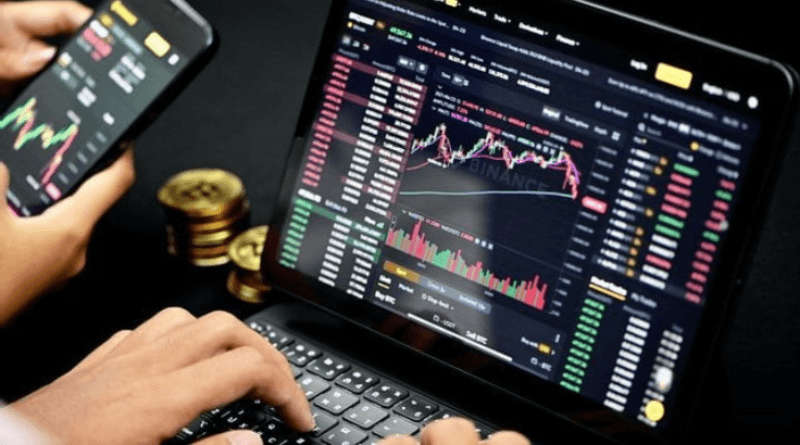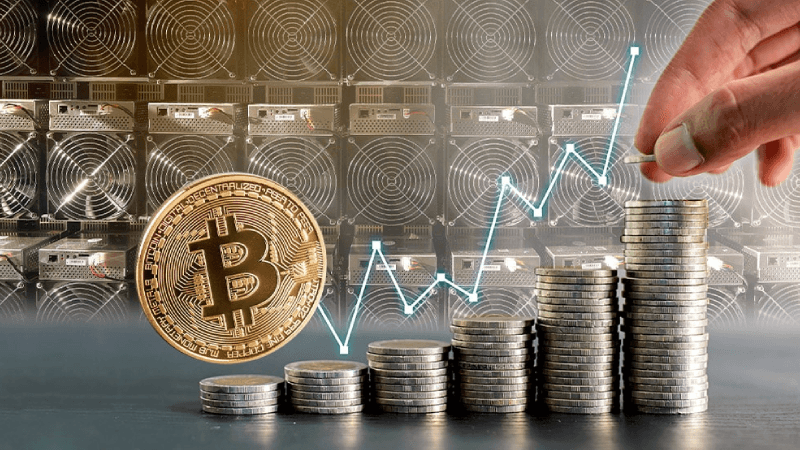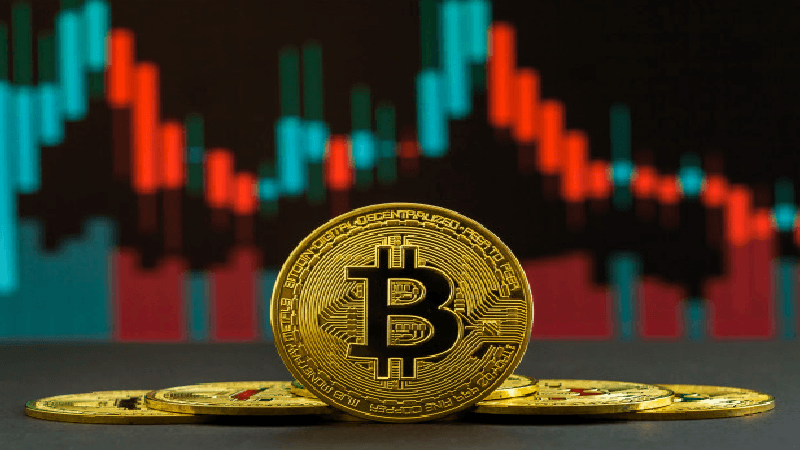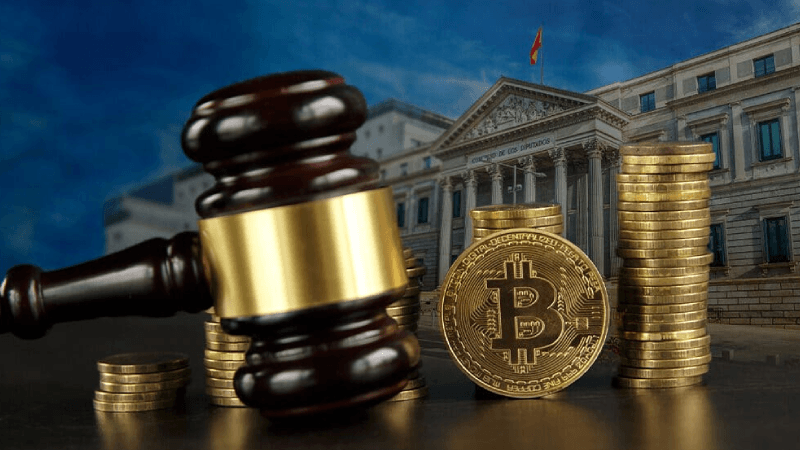
Cryptocurrencies are an increasingly popular form of investment due to their rapid appreciation in value and ease of transacting. However, they are also an attractive target for hackers and scammers looking to steal these digital currencies.
Therefore, it is important to take security measures to protect your cryptocurrencies. In this article, you will learn some techniques and tips to keep your digital assets safe.
The importance of protecting your cryptocurrencies
Cryptocurrencies represent a revolutionary way to store and transfer value, but they can also be targeted by hackers and fraudsters. Therefore, it is vital that you protect your cryptocurrencies with adequate security measures.
Some of the reasons why it is important to protect your cryptocurrencies are:
- Cryptocurrencies are irreversible: if someone gets hold of your funds or you lose them through negligence, there is no way to get them back.
- Cryptocurrencies are anonymous: this makes them attractive to criminals seeking to hide their illegal activities.
- Cryptocurrencies are decentralized: this means that there is no centralized entity that guarantees their security, as is the case with banks and credit cards.
To protect your cryptocurrencies, you should follow some basic recommendations:
- Keep your private keys safe: these keys are the only way to access your funds, so you should keep them in a safe place and not share them with anyone.
- Use a secure wallet: there are several wallet options to store your cryptocurrencies, but you should choose one that offers robust security measures.
- Do not reveal personal information: never share sensitive information such as your address or phone number in forums or social networks related to cryptocurrencies.
In short, protecting your cryptocurrencies is essential to avoid irreparable losses. By following good security practices and remaining cautious of potential threats, you will be able to fully enjoy the benefits of cryptocurrencies without taking unnecessary risks.
Tips to protect your cryptocurrencies
- Use a secure wallet: Use a cryptocurrency wallet that has a good reputation and is protected by security measures, such as two-factor authentication.
- Do not reveal your private key: Your private key is like the key to your virtual vault. Do not share it with anyone, or write it down anywhere that is not secure.
- Make backup copies: Keep a backup copy of your private keys and seeds in different secure locations, such as a safe or an external hard drive.
- Don't click on suspicious links: Hackers can send emails with malicious links that can install malware on your computer. Do not click on any suspicious links.
- Do not disclose personal information: Do not share personal information, such as your email address or phone number, with strangers who contact you online.
- Update your devices and applications: Keep your devices and applications updated to avoid known security vulnerabilities.
- Do not make transactions from public networks: Avoid using public Wi-Fi networks to access your wallets or make transactions, as these networks are more susceptible to attacks.
Use a secure wallet
The wallet is the application or device that allows you to store, send and receive cryptocurrencies. It is important to choose a secure and reliable wallet to protect your assets.
There are different types of wallets, such as desktop, mobile, online and hardware wallets. Each has its own advantages and disadvantages in terms of security and convenience.
It is advisable to use a hardware wallet, such as a Ledger or Trezor, as they offer the highest level of security by keeping private keys offline and away from the reach of hackers.
However, if you prefer an online or mobile wallet, be sure to choose one with a good reputation and strong security measures, such as two-step authentication and end-to-end encryption.
Remember never to share your seed phrase or private key with anyone and always make sure you have access to your private keys in case of any eventuality.
Don't share private information
One of the easiest ways hackers can gain access to your cryptocurrencies is by stealing private information. Therefore, never share information such as your password, private key or recovery phrase with anyone.
You should also be cautious about entering your personal information on unknown websites or suspicious emails. Scammers may create fake sites or send emails that look like legitimate companies with the intention of stealing your personal information.
Keep your information safe and secure at all times, and don't be overconfident if someone asks you to disclose sensitive information.
Change your password regularly
One of the most important measures to protect your cryptocurrencies is to change your password regularly. It is recommended to do so every three months and whenever you suspect that someone else may know your access.
In addition, it is recommended to use strong passwords, combining upper and lower case letters, numbers and symbols. Avoid using obvious passwords such as "1234" or "password".
Another good practice is to enable two-factor authentication, which will further increase the security of your account by requiring a second verification step in addition to the password.
Keep your software up to date
One of the most effective ways to protect your cryptocurrencies is to keep your software up to date. This includes both your computer's operating system and the applications and programs you use to make transactions.
Updates often provide security enhancements and bug fixes that can be exploited by hackers to access your data and cryptocurrencies. Therefore, it is always advisable to install all available updates as soon as possible.
In addition, it is also important to use software from trusted sources and make sure to download it directly from the vendor's official website. This way, you make sure not to install malware on your computer that can put your cryptocurrencies at risk.
Be skeptical of promises of easy profits
One of the biggest scams in the world of cryptocurrencies is the promise of quick and easy profits. Many times, scammers use techniques such as bombarding people with messages on social networks or emails to lure them with the offer of guaranteed profits.
It is important to remember that there is no easy, risk-free way to make money. If someone offers you a method to make quick profits with cryptocurrencies, it is very likely to be a scam.
In addition, you should be wary of those who offer to invest your money in an unknown or unstable cryptocurrency. Before investing in any digital currency, research well its reputation and track record in the market.
Be skeptical of any promise of easy profits and remember that the only sure way to protect your cryptocurrencies is by educating yourself and taking preventive measures to avoid fraud and hacks.
What to do if your cryptocurrencies have been stolen
In case you suspect that your cryptocurrencies have been stolen, it is important that you take immediate action to minimize the damage:
- Notify the platform: If your cryptocurrencies were on an exchange platform, you should notify the platform's technical support immediately. They will be able to block the account and find possible clues to the theft.
- Change passwords: It is important to change all passwords related to your cryptocurrency account, including the associated email.
- Notify the police: If the amounts stolen are significant, you should notify the authorities to initiate an investigation.
- Monitor the market: If the hacker attempts to sell your stolen coins on an exchange platform, you may be able to identify the transaction and recover your funds.
- Learn from the experience: Analyze what happened and ask yourself how you can prevent this from happening again in the future. Be sure to take preventative measures to better protect your cryptocurrencies.
Change all your passwords
The first security measure you should take is to change all your passwords regularly. Use a combination of letters, numbers and special characters to make them more secure. Use different passwords for each account, so if a hacker manages to crack one password, they won't have access to all your accounts.
Also, avoid using obvious or easy-to-guess passwords such as birth dates or proper names. If you have difficulty remembering several passwords, you can use a password manager to help you store them.
Report the fraud to the competent authorities
If you have been the victim of a cryptocurrency-related fraud, it is important that you report it to the relevant authorities as soon as possible. This will help prevent others from falling for the same scam and allow investigators to track down and arrest those responsible.
Some of the entities you can report a fraud to include:
- Local or national law enforcement.
- The Securities and Exchange Commission (SEC) in the U.S.
- The European Securities and Markets Authority (ESMA) in Europe
- The Australian Securities and Investments Commission (ASIC) in Australia.
Remember to provide as much information as you can about the fraud, including names, addresses, emails and any other evidence you have. It is also important to keep records of all communications with the authorities to facilitate the investigation.






